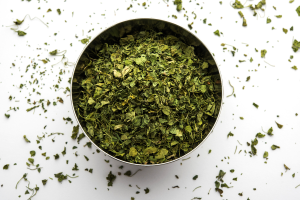

According to research, consuming the appropriate nutrients over time can boost your mood, manage stress, reduce anxiety, and even aid in the fight against depression. Anxiety and depression symptoms can be greatly improved by merely changing your diet. In other words there are different types of foods for moods that you can try to improve your mental well-being.
In a recent clinical trial known as the SMILES trial, researchers divided roughly 70 participants into two groups; all had been diagnosed with depression and had poor diets. The first group stopped receiving therapy and adopted a balanced diet resembling that of the Mediterranean region which is full of fruits, vegetables, olive oil, low-fat dairy, fish, eggs, seeds, and nuts.
The second group continued to eat sweets, processed meats, and salty snacks while attending frequent support group meetings. In comparison to the second group, the healthy eaters displayed fewer depressive symptoms after three months. Almost a third of them no longer met the definition of depression.
Interested in learning how the appropriate food can affect your mood and mental health? Read on.
10 Foods for Moods You Must Try
The 10 mood boosting foods listed below have all been shown to help reduce stress, lift spirits, calm the nerves, or combat depression:
1. Chocolate
Research has finally proven what many of us already know to be true: eating chocolate makes you happy. Consuming a little quantity of dark chocolate every day for two weeks reduced levels of cortisol and other stress hormones in people who were experiencing high levels of stress, according to research from the Nestlé Research Center in Switzerland. The antioxidants found in dark chocolate get the credit for this.
Just keep in mind that a delectable chocolate piece has over 200 calories, otherwise you could start to worry about gaining weight. It is one of the best mood-boosting foods.
2. Fish
Good news for people who struggle with anxiety: A study has found that routinely eating fatty fish like herring, mackerel, tuna, and salmon can help lessen anxiety. It is credited to its omega-3 fatty acids, which are necessary for improving mood but our systems are unable to produce them.
Omega-3 fatty acids affect dopamine and serotonin in particular, which are involved in mood. Taking omega-3 pills before a test considerably reduced the participants’ anxiety symptoms, according to a randomized, controlled trial.
3. Green Tea
On a bad day, drinking a cup of tea can assist to calm your senses, relax your muscles, and improve your mood. According to studies, if you make it green tea, you’ll gain even more benefits. According to a Japanese study published in the American Journal of Clinical Nutrition, elderly persons who drank two to three cups of green tea daily experienced fewer depressive symptoms.
That may be due to a number of mood-enhancing substances such as the amino acid L-theanine, which lowers anxiety. A small amount of caffeine is also present in green tea, just enough to give you a boost when you’re feeling down but not enough to make you jittery.
4. Oysters
Undoubtedly, oysters have a reputation for being aphrodisiacs. But their benefits for elevating mood go far beyond the bedroom. Increased zinc intake helps lessen anxiety. Zinc also improves the quality of sleep, which is essential for preserving homeostasis.
Eating oysters can be pleasurable and instantly uplifting once you get the hang of it. Not a fan of seafood? To acquire your daily amount of zinc, you can also consume some cashews, eggs, liver, or beef.
5. Blueberries
The antioxidant content of blueberries surpasses that of any other common fruit or vegetable, providing a wealth of advantages for improving memory. Blueberries aid in mood regulation, memory enhancement, and brain ageing prevention mostly because of a class of antioxidants called flavonoids. According to some experts, they might even do more.
6. Spinach & Other Leafy Greens
Magnesium is a mineral that, among other things, helps people feel less anxious, but over half of all Americans do not consume enough of it. Consuming it is abundant in dark leafy greens like spinach and Swiss chard, making them a simple method to meet your daily vegetable requirements while also enhancing the health of your brain. Beans, lentils, almonds, and avocados are additional beneficial sources. These are known as “good mood food” as they can lift the mood easily.
7. Yoghurt & Other Probiotics
Probiotic-rich foods like yoghurt, kimchi, and sauerkraut are all the rage these days because they help regulate the bacteria in your stomach. A better mood, less stress, anxiety, and a lower risk of depression are all associated with the gut flora that is in balance, according to recent studies.
Though some experts warn that it’s too soon to make a definitive statement, probiotics for depression and anxiety seemed to assist some people, but not all, according to a recent analysis of 10 short but reliable research. It won’t harm your moods to occasionally slurp down a cool yoghurt smoothie; in fact, it might even be beneficial.
8. Coffee
The most consumed beverage in the world is coffee, which may also make people happier. Caffeine in coffee increases alertness and focus by preventing the naturally occurring substance adenosine from binding to brain receptors that encourage fatigue.
Additionally, it enhances the release of neurotransmitters that improve moods like dopamine and norepinephrine. Caffeinated and decaffeinated coffee significantly enhanced mood compared to a placebo drink in a study including 72 participants, indicating that coffee also includes additional substances that affect mood. Numerous phenolic substances, including chlorogenic acid, were blamed by researchers for this improvement in attitude. It is one of the foods for depression and anxiety.
9. Bananas
They contain a lot of vitamin B6, which aids in the synthesis of happy hormones like dopamine and serotonin. Additionally, a 136-gram large banana has 16 grams of sugar and 3.5 grams of fibre.
When sugar and fibre are consumed together, sugar is gradually absorbed into the bloodstream, resulting in stable blood sugar levels and enhanced mood regulation. Anger and mood swings might result from low blood sugar. Last but not least, this commonplace fruit from the tropics is a fantastic source of prebiotics, a type of fibre that supports the growth of good bacteria in your stomach, especially when the peel is still green. Mood disorders are less common in people who have healthy gut flora. It is also known as mood food.
Conclusion
When you’re down, you might want calorie-dense, high-sugar foods like ice cream or cookies to feel better. Despite the possibility of a sugar high, this is unlikely to be beneficial to you in the long-term and might even be dangerous. This is why you must consume the foods that are described above as they will improve mood as well as your health.




